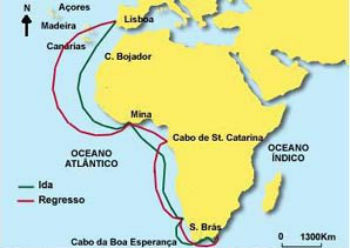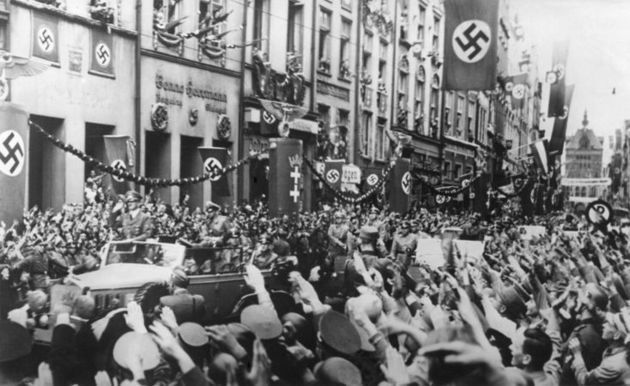Hercules is the Roman name of the Greek demigod Heracles, one of the most popular figures in ancient Greek mythology. Hercules was the son of Zeus, god of gods, and the mortal Alcmene.
Summary of the story of Hercules in Greek Mythology
Zeus was married to the goddess Hera, with whom he had two children: Hares and Hephaestus. Hera represented the deity of marriage, protector of women and births, and became known in the stories mythological for his striking personality and his pursuits of Zeus' lovers and children, throughout his relationship.
Zeus was in the habit of walking among mortals and on one of his walks he met and became interested in Alcmene, a mortal married to the king of Thebes, called Host.
Upon discovering that the king was on a war mission, Zeus characterized himself as Host in order to seduce and deceive Alcmene.
After spending just one night together, the mortal became pregnant with Zeus,generating the demigod Heracles, better known as Hercules.
From his birth, Zeus wanted to make his demigod son a complete immortal. For this reason, she asked Hermes, the messenger god, to take the baby to Hera's breasts to feed him the goddess's magical milk while she slept.
Hercules sucked the milk with such force that even after being fed, Hera's breasts continued to flow the magical drops which, according to the myth, when they fell into the universe, formed the Milky Way.
 Painting depicting Hercules being fed by the milk of Heras, wife of Zeus.
Painting depicting Hercules being fed by the milk of Heras, wife of Zeus.
Hera felt a great hatred of Hercules for being the result of a betrayal of her husband Zeus with a mortal.
One night the goddess sent two snakes to kill him, but Hercules, still a baby, easily strangled the two animals, showing his great brute strength just like his father's.
See more about the meaning of Greek mythology.
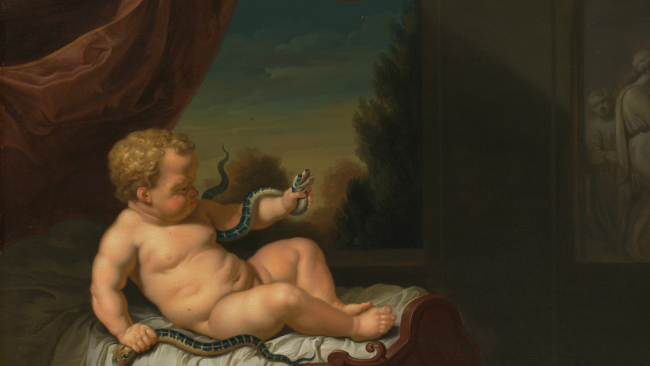 Painting depicting Hercules as a baby, killing the serpents sent by Hera.
Painting depicting Hercules as a baby, killing the serpents sent by Hera.
Hercules went through a troubled childhood due to the lack of control of his great brute strength.
The mythological stories present Hercules as someone of few friends, but with a kind heart. His adolescence was marked by military training and his work in the field.
Throughout this period, Greece lived an era of peace and prosperity, without conflicts or wars. Hercules already grown up, began to gain the respect and admiration of the Greek people.
He met and fell in love with a mortal named Megara, whom he married, had children and lived with for years.
Know the history of Ancient Greece.
Hera's hatred of Hercules and its consequences
While Hercules' life seemed stable and peaceful, Hera, still thirsting for revenge, bewitched the Greek hero by making him kill his wife and children.
Upon freeing himself from the spell, Hercules, feeling guilty and seeking remission, went to find the Oracle at Delphi so that it could give him a sentence of forgiveness for what he had done.
The oracle ordered the son of Zeus to serve his cousin Euristeus, king of Mycenae and Tyrinth, for twelve years.
Euristeus, who was a sympathizer with Hera and also wanted Hercules dead, ordered his demigod cousin to perform twelve tasks that could cost him his life.
The Twelve Works of Hercules
First Job: Killing the Nemean Lion
In this first work, the demigod had the mission to kill the great Lion of Nemea.
The beast had thick, impenetrable skin. All the weapons Hercules used during his attacks were destroyed without even harming the animal.
To complete the job, Zeus' son used his own brute strength to strangle and kill the beast. He even peeled off the lion's skin using the animal's own claws.
After fulfilling the mission, Hercules used the lion's skin as his armor in the following works.
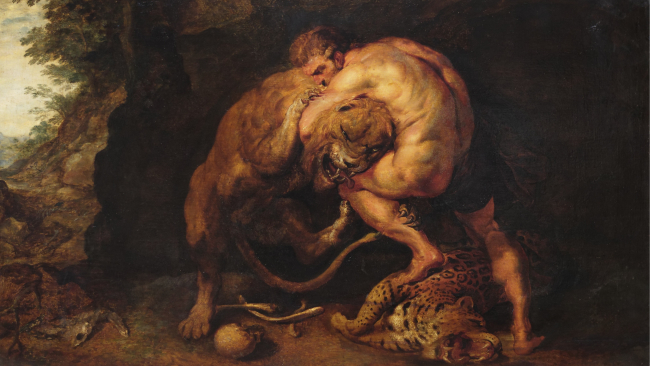 Painting representing the first work of Hercules: the death of the Lion of Nemea.
Painting representing the first work of Hercules: the death of the Lion of Nemea.
Second work: Killing Hidra de Lerna
Lerna's Hydra was a multi-headed, poisonous-blooded monster that lived in Lake Lerna and was meant to guard the entrance to the Underworld.
Killing the animal was one of the most difficult tasks, as with each head cut off, two grew in place.
A nephew of Hercules advised the demigod to burn the tops of the heads as soon as they were cut from the monster's body, in an attempt to keep them from regenerating.
Hercules used the strategy and managed to eliminate the animal's heads. With only one left, the demigod buried the monster under a giant stone and soaked his arrows in the monster's poisonous blood, in order to use it in future missions.
 Image depicting Hercules in his second mission: to eliminate the monster Hydra of Lerna.
Image depicting Hercules in his second mission: to eliminate the monster Hydra of Lerna.
Third job: capturing the Cerinea Doe
The Doe of Cerinea was a sacred animal, which belonged to the goddess Artemis. The animal had golden horns and was as fast as an arrow.
For a year, Hercules hunted the animal and found his chance to dominate it one day when he spotted it drinking water. As he aimed, he hit the doe's paws, fulfilling his fourth job.
Euristeus intended to generate the wrath of Artemis against Hercules, for injuring his sacred animal. However, the demigod returned the doe to nature and won the goddess's forgiveness.
Fourth job: capture the wild boar from Erimanto
In the fourth work Hercules had for mission to capture the great Boar that lived in the giant Monte Erimanto.
To accomplish the feat, the demigod followed the advice of the centaur Chiron and made the boar run through the thick snow, so the animal was easily captured and taken to the king.
Fifth job: cleaning the Stables of King Augias
In this mission, Hercules was supposed to clean the large stables of King Augias, who promised to give a large part of his flock to the demigod, if he could complete the cleaning in just one day.
What seemed impossible even for the king, was successfully accomplished by Hercules. With his brute strength, the demigod managed to redirect the flow of the Alpheus and Peneu rivers to pass through the stables. So, with the help of the current of the rivers, Hercules was able to complete the work in just one day.
However, the king did not fulfill the agreement to give him part of the flock. Then Hercules killed him for having broken his promise and gave the kingdom to the king's heir son, who had been banished by his father.
Sixth job: kill the birds of Lake Estínfalo
Hercules had to travel to the forest surrounding the shadowy Lake Stymphalus to kill the giant carnivorous birds that fed on humans.
The birds also had poisonous droppings and metallic feathers that cut through rocks. To carry out the work, the demigod, armed with bronze castanets given by Athena and Hephaestus, destroyed the birds with his poisonous arrows.
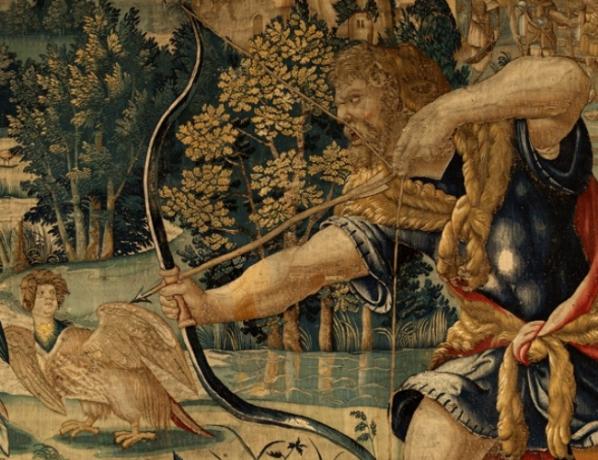 Painting representing the sixth work of Hercules: capturing and killing the birds of Lake Stymphalus.
Painting representing the sixth work of Hercules: capturing and killing the birds of Lake Stymphalus.
Seventh job: capturing the Bull of Crete
Poseidon sent a large bull to King Minos to sacrifice the animal in his honor. However, the king did not kill the animal and ended up irritating Poseidon, which caused the bull to get out of control, causing death and destruction.
Hercules had as his seventh mission to capture the bull. For this, he traveled to the kingdom and was able to easily subdue the wild animal with his strength.
 Statue in honor of the seventh work of Hercules.
Statue in honor of the seventh work of Hercules.
Eighth job: stealing Diomedes' horses
In his eighth mission, Hercules was to steal the horses of Diomedes, son of Hares, king of Thrace.
For this work to be accomplished, the demigod had the help of some men, including his friend Abdero. Diomedes' horses were bred to kill any man who crossed their path.
Hercules managed to capture the horses and asked Abdero to hide the animals. However, Abdero was devoured by the horses as he guided them on the path.
Hercules returned, led the animals to a place of peace where they could be tamed, mourning the death of his friend.
Ninth job: getting the Hippolyta belt
This time Hercules had the mission to obtain the belt of Hippolyta, Queen of the Amazons. This belt was magical and was a gift from the god of war to the queen.
However, Hippolyta spontaneously delivered her gift to the demigod, as she was impressed by his determination to complete the delegated work.
Hera, unhappy with Hercules' conquests, spread rumors among the Amazon warriors that Hippolyta had been kidnapped by Hercules.
The female warriors pursued the demigod, but were quickly destroyed and killed by him. Hercules, for his part, thought that Hippolyta had conspired against him. So he killed her, taking possession of her belt.
Tenth job: get the Gerião cattle
Erythea's Gerion was a giant who had three heads and six arms, all united in one body.
Hercules had the mission of stealing and taking the huge herd of red oxen from Gerião to Euristeus. However, the herd was on the other side of the world.
Hercules took two years to complete this work, having to face the blazing sun and the monstrous dog Ortro, brother of Cérbero.
When he finally captured and led the herd to his cousin Euristeus, he saw all the animals sacrificed in honor of the goddess Hera.
Eleventh job: stealing another's apples from the Hesperides Garden
They spent years looking for the Hesperides Garden, where the precious golden apples were born. When he finally found the place, Hercules discovered that the Garden was protected by a mighty dragon with a hundred heads. Knowing he couldn't beat him alone, Hercules asked for help from a titan named Atlas.
Atlas was condemned to bear the weight of earth and sky forever after the war between titans and gods ended.
Hercules offered to hold the weight while Atlas took the apples and faced the dragon. But after completing the mission, the Titan didn't want to bear the weight back.
Hercules tricked Atlas by pretending to agree with him and asked the titan to hold up the sky so he could put upholstery on his shoulders. However, the moment Atlas took the weight back, Hercules grabbed the apples and fled.
Twelfth job: capture Cerberus
Cerberus was a monstrous three-headed dog that guarded the entrance to the Underworld. This sacred entrance was in a large cave in the Laconic region that had many other monsters besides the dog.
Even being the strongest demigod in all of Ancient Greece, Hercules was entering the world of Hades. So he humbly asked his uncle's permission to take the dog to King Euristeus to finish his twelve works delegated by his cousin.
Hades agreed, but demanded that Hercules not harm the dog and bring him back after completing the job. The demigod managed to dominate Cerberus with his strength and took him to his cousin Euristeus.
As promised, after completing the task, Hercules took the dog back to the underworld.
 Painting depicting Hercules' last work: capturing Cerberus.
Painting depicting Hercules' last work: capturing Cerberus.
The end of the twelve works and the death of Hercules
After serving his cousin for twelve years, Hercules was free to live his life after suffering the loss of his family.
One day, Hercules and his wife Dejanira had to cross a river whose bridge was broken. So he asked Nesso, a huge centaur, to get through it safely.
What Hercules did not know was that the centaur had a rivalry with him, and as soon as Dejanira mounted on his back, the centaur fled with the demigod's wife.
Upon realizing the deception, Hercules hit Nesso with a poisoned arrow. Before dying, the centaur gave Dejanira a robe with her poisoned blood and ordered her to offer it to her husband when it was convenient for him.
A few years later, Hercules fell in love with Iole, a princess, leaving Dejanira behind. To get revenge, the betrayed wife offered the centaur's poisoned tunic as a wedding gift to the couple.
When putting it on, Hercules felt the tunic sticking to his skin in such an extreme way, that when trying to get rid of the clothes, pieces of flesh came out.
Disoriented by such pain, the demigod built a pyre and threw himself into the flames, then died.
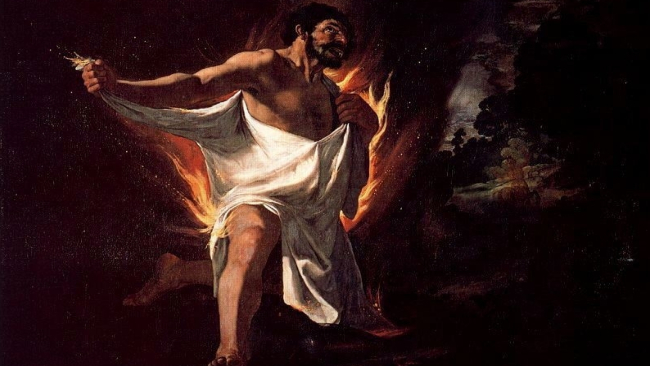 Painting depicting the death of Hercules.
Painting depicting the death of Hercules.
Films and animations about the life of Hercules
As one of the most famous heroes in Greek mythology, the story of Hercules was adapted for film and animation.
In 1997, Walt Disney adapted the story into an animation that became known for showing the daily life of Hercules among the Greek people in their teens, and their feats to win a life among the gods on Mt. Olympus.
In 2014, the film “Hercules” was released, which tells the story of the loss of his family and the twelve works carried out for his cousin Euristeus. The film was directed by the American Brett Ratner.
See also the meaning of Zeus and Mythology.

